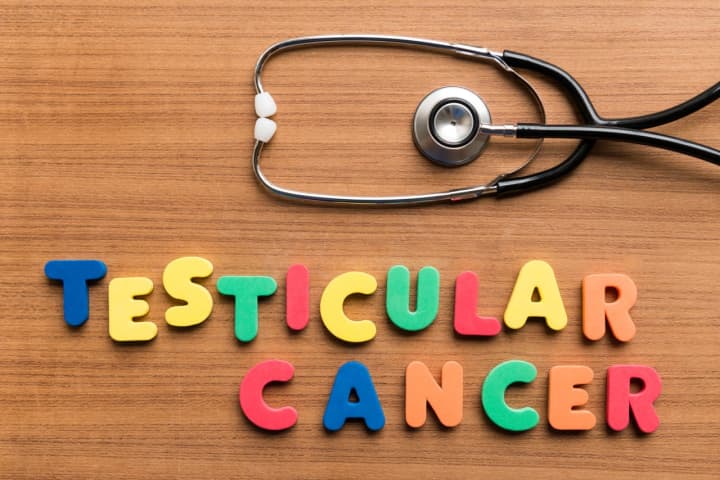Highly treatable and almost always curable if caught early, testicular cancer can strike men of any age. That’s why early detection through awareness and regular exams is key to lowering the risk for this potentially lethal disease.
Contrary to popular belief, trauma to the testicles does not lead to testicular cancer, nor do activities such as bike riding or horseback riding. The main risk factors for testicular cancer are having undescended or partially descended testicles. Other risk factors include a family history of testicular cancer, Klinefelter syndrome, a genetic disorder in which males are born with an extra X chromosome, having multiple irregular dark spots on one's skin and being infected with HIV. However, many men who develop testicular cancer have no risk factors at all.
The symptoms of testicular cancer often include a painless lump or swelling in a testicle. Other symptoms include:
- A significant loss of size in one of the testicles
- A feeling of heaviness in the scrotum
- A dull ache in the lower abdomen, back or groin
- A sudden collection of fluid or swelling in the scrotum
- Pain or discomfort in a testicle or the scrotum
- Enlargement or tenderness of the breasts
Unsurprisingly, most testicular cancers are found by men themselves or by their partner, which is why it’s important to perform regular self-testicular exams. If any changes are noticed, contact a doctor immediately.
With early detection, testicular cancer treatments are effective and often less aggressive than treatments used in more advanced stages. In most cases, men with testicular cancer will undergo surgery to either remove the entire testicle or remove the tumor and surrounding tissue, sparing the remaining normal testicular tissue and sperm-producing regions. Others with more advanced disease may be treated with chemotherapy, additional surgery or radiation therapy to destroy any remaining cancer cells. Fortunately, after initial treatment, approximately 95 percent of all patients diagnosed with testicular cancer are cured.
For the best chance of successful treatment and cure, it’s important to go to a cancer center with experience in the management of testicular cancer. This includes access to cutting edge advances in genitourinary oncology, medical oncology, radiation oncology and pathology that provide the most comprehensive and innovative care for patients.
NewYork-Presbyterian (NYP) Cancer Centers provide high-quality, comprehensive cancer care at convenient locations throughout the New York metropolitan area, Westchester and the Lower Hudson Valley. NYP Cancer Centers provide a comprehensive program of cancer services in a state-of-the-art, comfortable environment. Board certified medical oncologists collaborate with a multidisciplinary team of cancer specialists to provide each patient with an individualized plan of care. To find a location in your area visit nyp.org/cancerlocations.
NewYork-Presbyterian is one of the largest and most comprehensive hospitals in the nation, ranked New York’s No. 1 hospital for the 16th consecutive year, and No. 6 in the United States, according to U.S. News and World Report. Affiliated with two academic medical colleges – Columbia University College of Physicians and Surgeons and Weill Cornell Medicine, NewYork-Presbyterian brings together internationally recognized researchers and clinicians to develop and implement the latest approaches for prevention, diagnosis and treatment. The Herbert Irving Comprehensive Cancer Center at NewYork-Presbyterian/Columbia University Medical Center is one of only three NCI-designated comprehensive cancer centers in New York State. NewYork-Presbyterian provides comprehensive cancer care at all of our locations across the New York Metro area including Westchester County and the Hudson Valley. Learn more at nyp.org/cancer.



